SUCCESS STORIES
Find out what our customers have to say about our support and the success of their robotics project.
Check out some of our projects…

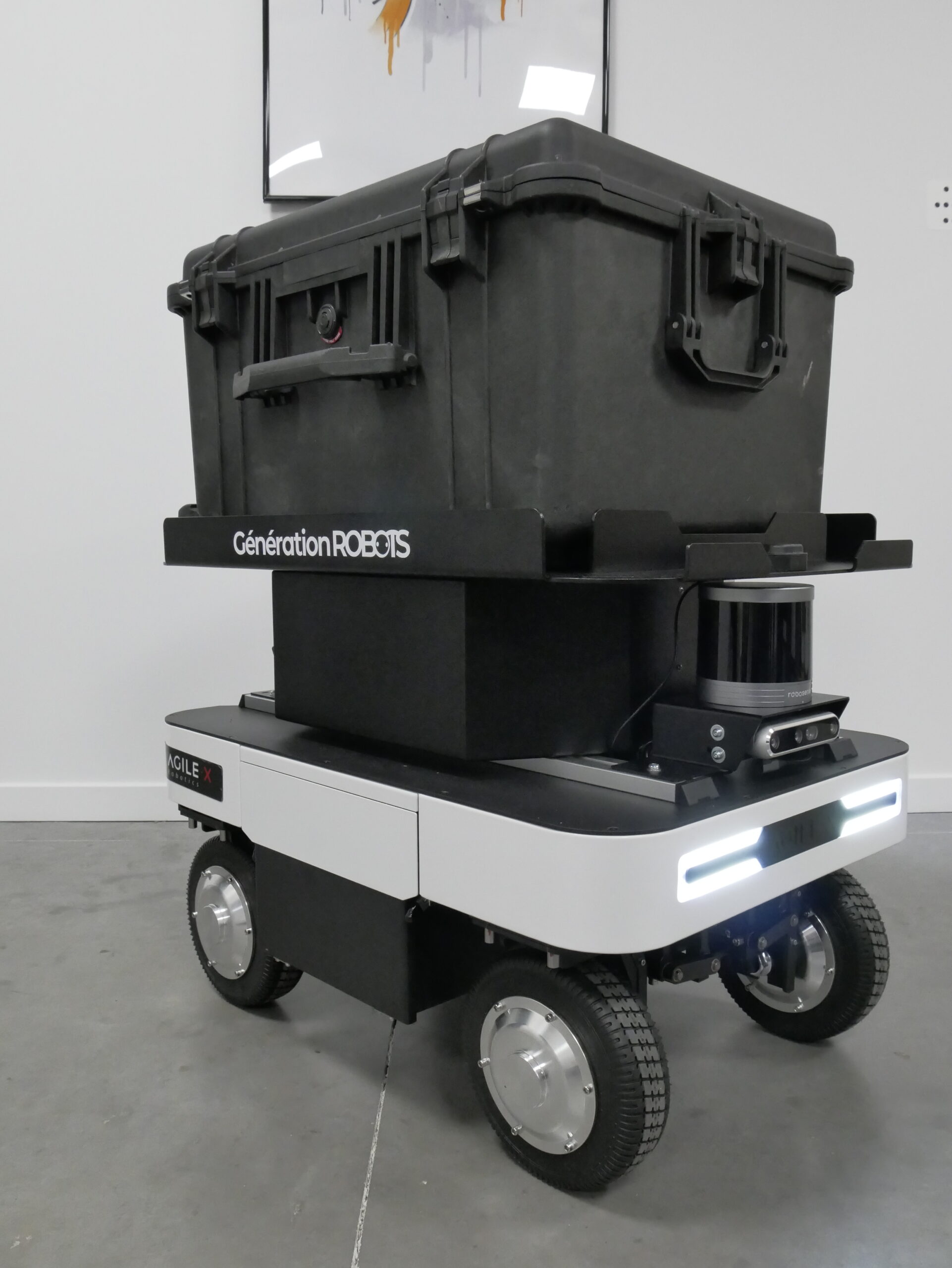
University - PhD researchers - Universität Bielefeld
Germany
University research project for a robot that transports suitcases in an airport hall.
- Agilex Ranger 3.0 mobile base with sensor installation and associated drivers.
- Customised mechanical design (3D modelling) allowing suitcases to be transported and easily integrated into the mobile base chosen by the customer.
- Also includes 2 3D cameras and 2 3D Lidars for navigation.
- The aim is to enable researchers to add their own navigation algorithms, as well as new software components for existing and future sensors.
- This project will result in specialist publications on future developments.
Project in collaboration with Generation Robots

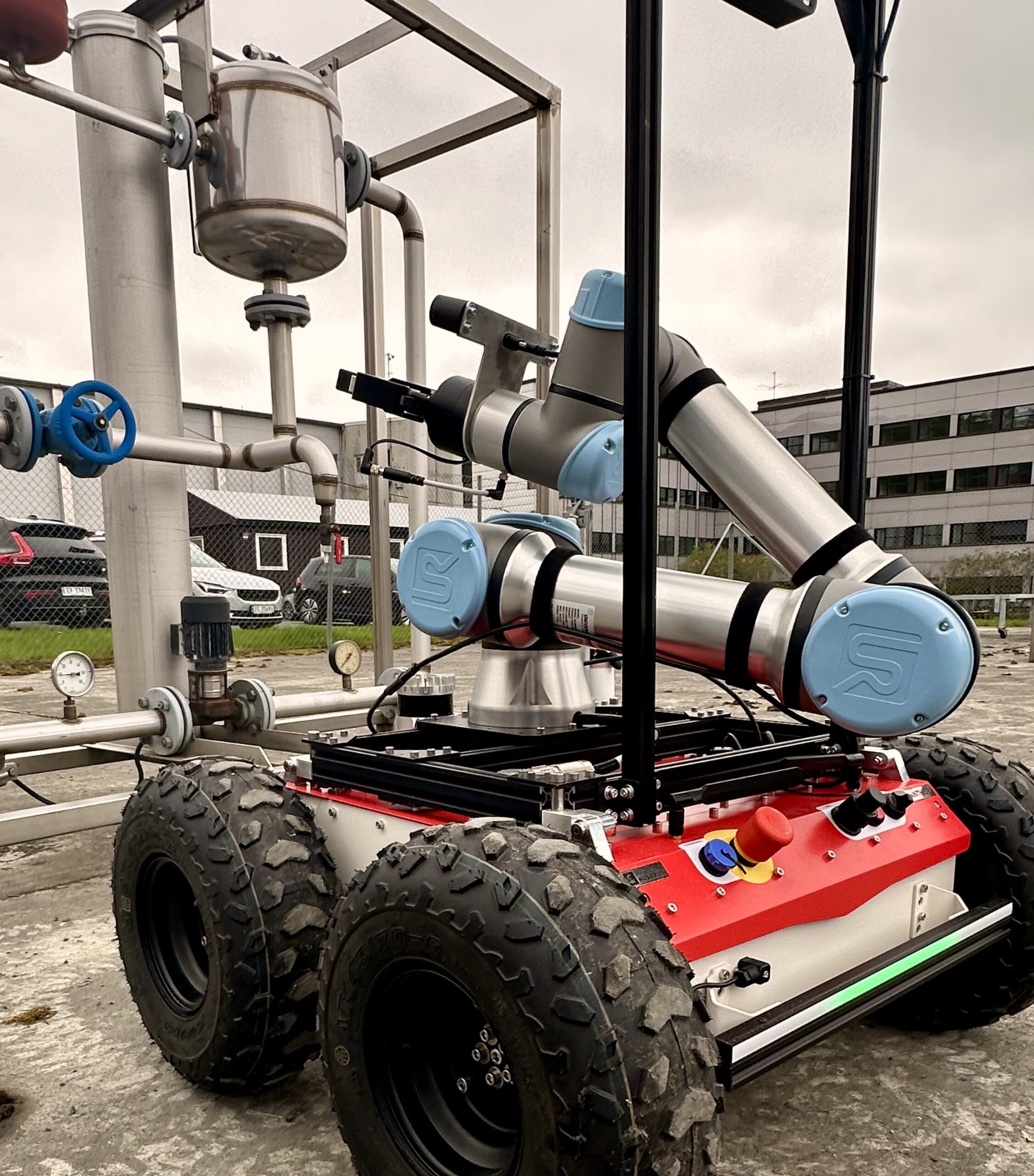
SINTEF
Norway
Mobile robot manipulator for development, testing, and evaluation of autonomous inspection and maintenance tasks. The robot was purchased in connection with the european JARVIS project (grant number 101135708).
- Husarion Panther autonomous mobile base equipped with navigation, mapping and localisation algorithms (Lidar Ouster OS032 rev6 and inertial unit).
- The robot arm is mounted on the mobile base to carry out close-up inspections and perform intervention tasks such as valve operations.
- This robot is equipped with a PC with GPU to allow the customer to work on neural networks and two Zed2i 3D stereo vision cameras used for object recognition, machine learning and detection in general. One of the cameras is on the mast and the other is positioned on the arm to ensure better grip.
- This platform is open source (ROS2) so that researchers can add their own algorithms and software layers to the existing system.
Project in collaboration with Generation Robots
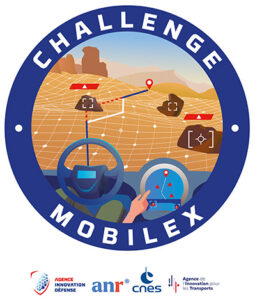
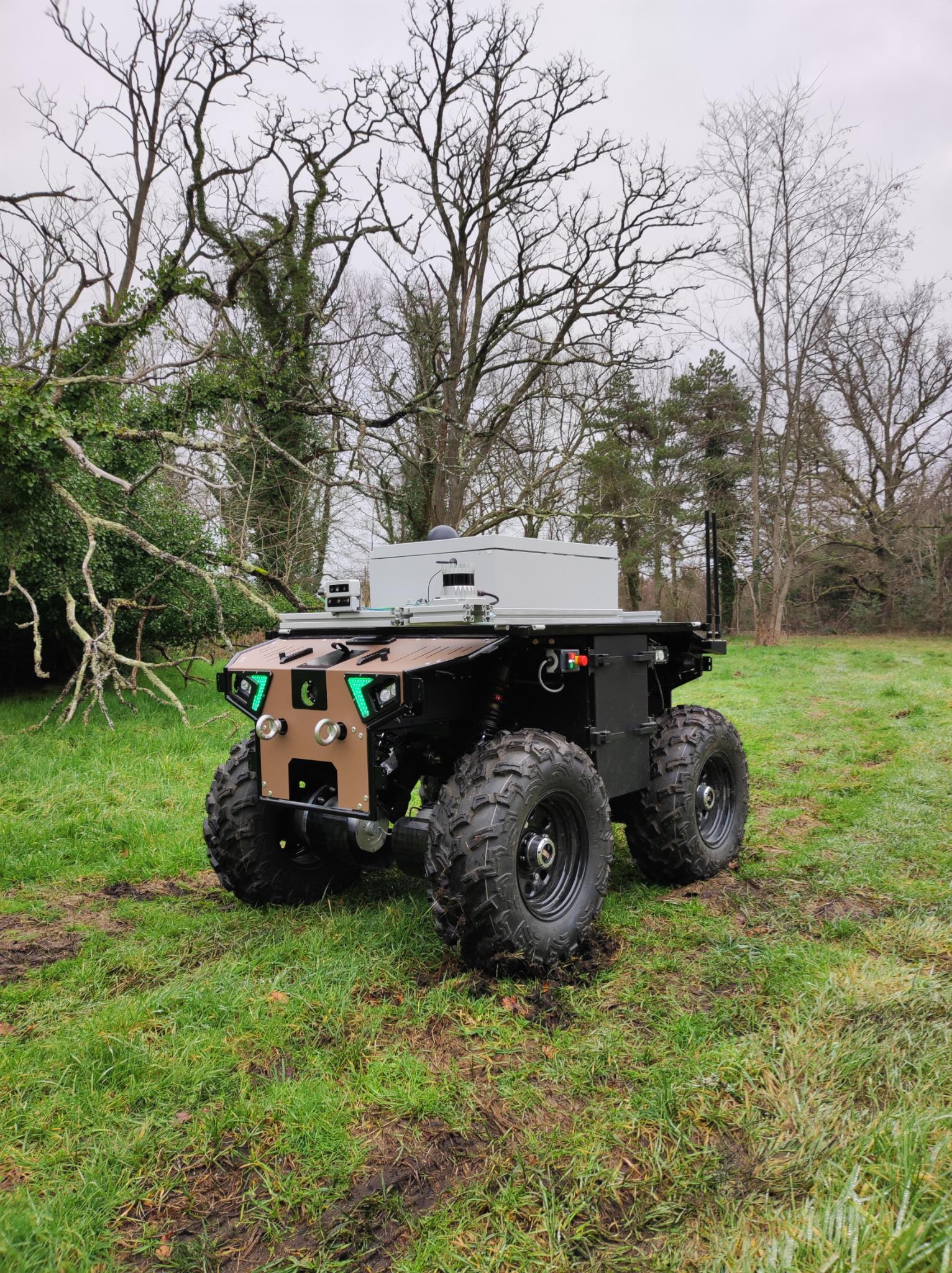
GR Lab and Onera are one of seven teams selected for the Mobilex Challenge organised by the French Ministry of the Armed Forces, launched in October 2023.
It is structured around three challenges that will gradually increase in difficulty (challenge 1 in 2024, challenge 2 in 2025 and challenge 3 in 2026).
The MOBILEX challenge is being carried out in partnership with the French National Centre for Space Studies (CNES) and the Transport Innovation Agency (AIT).
PANAME project: augmented perception for navigation in complex and unstructured outdoor environments
The development of advanced driver assistance systems to manage the trajectory of land vehicles, taking into account the complexity of their environment (slopes, damaged roads, obstacles, potholes, etc.) and its evolution, represents a crucial challenge for dual (civil and military) research. In this context, the MOBILEX challenge aims to accelerate innovation by supporting seven applied research projects carried out by mixed teams from industry and research laboratories. The teams must take into account all the functions and constraints to be considered in order to manage the trajectory of an autonomous vehicle operating in a complex, even unstructured, environment.
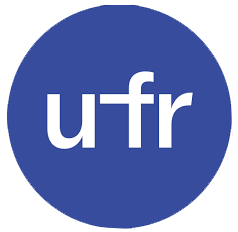
Universität Freiburg
Germany
Develop a thesis dedicated to MoMa-Teleop. In other words, a method of that produces whole-body motions for mobile manipulation by delegating the base motions to a reinforcement learning agent, leaving the operator to fully focus on the task-relevant end-effector motions. Ultimately, the goal is to find more efficient algorithms that require fewer computing resources through this project. Thesis published in 2025.
Our engineering office carried out the entire assembly of the mobile base, the manipulator arm and the various sensors (and their drivers) requested. This left the customer free to work on the AI training models for their thesis.
- A Ridgeback mobile base from Clearpath Robotics
- A manipulator arm
- A RealSense camera for environmental perception
- All software components in Open Source
Project in collaboration with Generation Robots

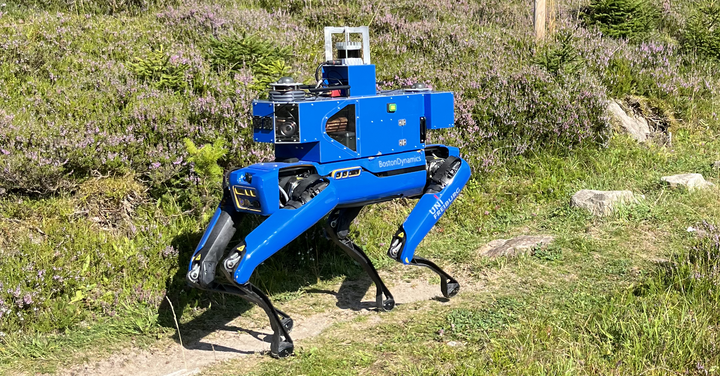
Universität Freiburg
Germany
Taking part in the DARPA challenge with a dog robot as a research platform, equipped with various sensors for exploration in complex environments, such as a mine. The aim for the teams at the Universität Freiburg is to save time on the design of the robot and concentrate on developing the autonomous exploration and mapping software.
The production and integration of the payload for the selected robot:
- A Spot robot dog
- A powerful PC for image recognition
- Six RGB cameras
- Two IR cameras
- An IMU/GPS
- A 3D lidar
- All the Open Source software bricks.
Project in collaboration with Generation Robots